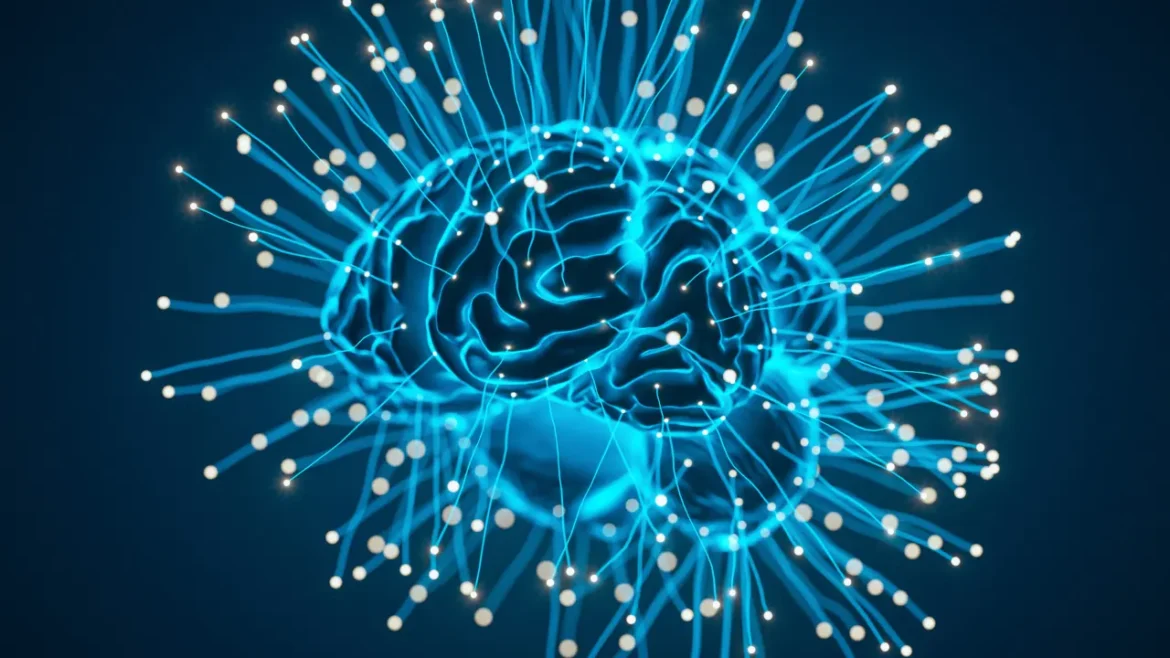Description
A complex disease affecting the brain’s central nervous system and causing a variety of neurological signs is known as autoimmune encephalitis. It is thought to occur from an aberrant immune response that wrongly targets particular proteins within the brain, causing inflammation and resulting damage. Each subtype of autoimmune encephalitis is marked by distinctive antibodies that target particular neural proteins.
Seizures, mobility difficulties, mental symptoms, modifications to personality or behavior, cognitive impairment, memory issues, and seizures are a few of the more typical symptoms. All ages are susceptible to autoimmune encephalitis. However, children and adolescents seem to get it more frequently. The ailment can be presented in a variety of ways. Anti-NMDA, anti-LGI1, together with anti-GABAB receptor encephalitis constitute a few typical subgroups of autoimmune encephalitis.
You May Also Like:
TOP 3 MUSHROOMS FOR MEMORY– YOU WILL NEVER FORGET NUMBER ONE
FINDING THE BEST TURKEY TAIL MUSHROOM POWDER: 5 TOP BRANDS REVIEWED
Autoimmune encephalitis: Description, Causes, and Treatment Protocol is an original (HealthXWire) article.
Possible Causes
Although there are many potential causes and associated risks for autoimmune encephalitis, the specific reasons are not well understood. Following are a few possible triggers of autoimmune encephalitis: –
Infections: Some people can develop autoimmune encephalitis as a result of infections, especially bacterial or viral illnesses. A few viruses, including the Epstein-Barr virus, varicella-zoster virus, and herpes simplex virus, have been linked to specific subgroups of autoimmune encephalitis.
Autoimmune Dysregulation: A person’s immune system unintentionally targets and destroys healthy brain tissue, which is what causes autoimmune encephalitis. This immune dysfunction may lead to brain injury and inflammation.
Genetic Predisposition: Acquiring autoimmune encephalitis can be made more likely by specific genetic variables. Occasionally, variations in genes related to immunological control and neural function have been suggested. The majority of the time, additional triggers are needed because genetic factors alone rarely result in autoimmune encephalitis.
Paraneoplastic Encephalitis: Autoimmune encephalitis can occasionally be paraneoplastic, which means it is linked to an underlying tumor. Small cellular lung cancer or ovarian teratomas are two examples of malignancies that might cause an immune reaction that results in autoimmune encephalitis.
Unknown Triggers: The precise cause of autoimmune encephalitis is still unknown in many instances. The syndrome may arise as a result of a synergistic interaction between genetic predisposition and environmental triggers, like infections or various immune system difficulties.
Other Autoimmune Disorders: An increased chance of acquiring autoimmune encephalitis can occur in those with pre-existing autoimmune diseases like rheumatoid arthritis (RA), Hashimoto’s thyroiditis, or systemic lupus erythematosus (SLE). These autoimmune diseases’ presence suggests a systemic immune system imbalance.
Exacerbating and Mitigating Factors
The following are some of the elements that make autoimmune encephalitis worse: –
Tumors: When autoimmune encephalitis is paraneoplastic, it is linked to an underlying tumor. As previously mentioned, tumors, especially small-cell lung carcinoma or ovarian teratomas, can cause the onset or progression of autoimmune encephalitis.
Infections: Immune-mediated encephalitis may be brought on by bacterial or viral infections. There are some infections that have been linked to specific subgroups of autoimmune encephalitis, namely Epstein-Barr virus (EBV) and herpes simplex virus (HSV).
Other Autoimmune Disorders: People who already have autoimmune diseases like rheumatoid arthritis (RA) or systemic lupus erythematosus (SLE) might be more likely to get autoimmune encephalitis.
Medications: Immune checkpoint inhibitors, which are used to treat cancer, are one kind of medicine that has the potential to either cause or exacerbate autoimmune encephalitis.
Stress: Stress that is prolonged or considerable has the potential to worsen autoimmune encephalitis symptoms and trigger illness flares.
The following are some of the alleviating factors underlying autoimmune encephalitis: –
Immunotherapy: Immunotherapy tries to stifle an immune reaction and lessen inflammation and is a component of standard treatment regimens for autoimmune encephalitis. This may decrease symptoms and stop the spread of the illness.
Early Detection and Therapy: Early diagnosis and treatment of autoimmune encephalitis may reduce or prevent long-term neurological impairment.
Stress Reduction: People can more effectively manage the psychological and emotional consequences of autoimmune encephalitis by using stress reduction approaches like mindfulness exercises, relaxation techniques, or counseling.
Symptomatic Management: The burden of autoimmune encephalitis might be reduced by managing specific symptoms, including seizures or psychiatric disorders.
Supportive Care: Seeking counseling, psychotherapy, or support groups can offer emotional support and assist people in overcoming the difficulties caused by autoimmune encephalitis.
Lifestyle Modifications: A healthy lifestyle that includes regular exercise, a well-balanced diet, and enough sleep can promote general well-being and possibly help with disease management.

Standard Treatment Protocol
Suppressing the immune system and limiting brain inflammation are the main targets of treatment for autoimmune encephalitis. Following are examples of common treatment procedures: –
Immunotherapy: A crucial component of treating autoimmune encephalitis is immunotherapy. It seeks to control the immune response and lessen brain inflammation. Typical immunotherapeutic strategies include: –
- Intravenous Immunoglobulin (IVIG)
Intensive antibodies from healthy donors are infused as part of IVIG therapy. Autoantibody production is thought to be decreased, and the immunological response is thought to be modulated. Throughout some days or weeks, IVIG is routinely administered in high dosages.
- Corticosteroids
In the beginning, high doses of corticosteroids like prednisone or methylprednisolone are frequently used to quickly decrease inflammation. They might be administered orally or intravenously. Steroids may aid in symptom management and guard against permanent brain damage.
- Immunosuppressive Agents
Immunosuppressive drugs like anti-CD20 monoclonal antibody rituximab or the cytotoxic agent cyclophosphamide may be recommended if the first immunotherapy is unsuccessful or as maintenance therapy. In order to lessen the autoimmune reaction, these drugs target and inhibit the body’s immune system.
- Plasma Exchange (PLEX)
The procedure referred to as PLEX, or plasmapheresis, entails taking the patient’s blood plasma, which carries the autoantibodies, out of the body and replacing it with a plasma substitute or donor plasma. This method aids in the elimination of circulating immune complexes and autoantibodies linked to the illness process.
Symptomatic Management: Various neurological and psychological signs of autoimmune encephalitis may develop. By reducing these symptoms, symptomatic treatment attempts to enhance the patient’s standard of life. The following are potential treatment choices: –
- Antiepileptic Drugs (AEDs)
Uncontrolled autoimmune encephalitis frequently causes seizures. For seizure control and prevention, doctors may prescribe AEDs like lamotrigine, valproate, or levetiracetam.
- Psychiatric Medications
Antipsychotic drugs or mood stabilizers may be needed to treat psychiatric symptoms, such as agitation, psychosis, or mood abnormalities. To control symptoms while taking into account possible drug interactions and negative effects, these drugs must be carefully chosen.

Treatment Options
The following are some possible autoimmune encephalitis treatments: –
Nutritional Supplements: These include: –
- Antioxidants
Beta-carotene, selenium, and antioxidants like vitamins E and C help shield cells from oxidative damage and inflammation. A diet that is well-balanced and rich in vegetables, fruits, nuts, and seeds can provide them. A wide spectrum of antioxidants can be obtained through the diet by consuming a variety of colored vegetables and fruits.
- B Vitamins
In addition to being crucial for immune system support, B vitamins like B9 (folate), B6, and B12 also serve as crucial for neurological function. Foods that contain leafy greens, whole grains, legumes, meat, and eggs are sources of these vitamins.
- Vitamin D
Autoimmune illnesses are more likely to develop when vitamin D levels are low. Supplementing with vitamin D may be thought about, especially in those who are deficient, as it may assist in immune modulation and may influence the autoimmune reaction.
- Omega-3 Fatty Acids
Fish oil supplements frequently contain omega-3 fatty acids, which have demonstrated anti-inflammatory characteristics and may help minimize brain inflammation. They are thought to be secure and might be useful as a supplement to therapy.
Natural and Herbal Remedies: These include: –
- Turmeric
Antioxidant and anti-inflammatory capabilities are shared by turmeric’s key ingredient, curcumin. Both inflammation and neuronal damage might be prevented. The right dosage and composition, as well as its effectiveness particularly for autoimmune encephalitis, need to be further studied.
- Ginger
Because of its anti-inflammatory effects, ginger has been utilized for centuries. It might have advantages in decreasing inflammation and easing autoimmune encephalitis symptoms. However, to determine its precise effects and protection in this situation, further research is required.
- Resveratrol
A substance called resveratrol is present in some berries, red wine, and grapes. It possesses anti-inflammatory, antioxidant, and potential neuroprotective properties. Further research is necessary, though, to determine how it affects autoimmune encephalitis particularly.
- Green Tea
Antioxidants, especially a class of substances known as catechins, are abundant in green tea. The neuroprotective and anti-inflammatory effects of such antioxidants have been established. Although green tea can be a healthy addition to a diet, additional investigation is required to pinpoint how it specifically affects autoimmune encephalitis.
However, it is crucial to remember that although complementary therapies including nutritional supplements, homeopathic cures, and herbal supplements might demonstrate promise as complementary treatments, their effectiveness and safety in treating cases of autoimmune encephalitis remain under investigation. Before pursuing any adjunct therapy, it is imperative to speak with a healthcare provider because they may interact with prescription drugs and differ in quality and effectiveness.

Conclusion
Autoimmune encephalitis is a neurological condition when the body starts to flare up due to attacks from its own immune system. Autoimmune encephalitis should be recognized in the early stage in order to initiate a swift and appropriate treatment to prevent neurological damage. This disease can be caused by potential factors such as genetic predisposition, viral or bacterial infections, and autoimmune dysregulation. Standard management of autoimmune encephalitis typically involves immunotherapies, such as corticosteroids, and intravenous immunoglobulins.
Plasma Exchange and symptomatic management were also well used in the field to treat this disease. Since nutritional support has been gaining belief in helping patients’ conditions, the collaboration between neurologists, immunologists, and nutritional specialists is key to providing comprehensive care and support to individuals affected by autoimmune encephalitis. Nutritional supplements that include antioxidants, vitamins B and D, turmeric ginger, and others can serve as a potential help for the recovery of autoimmune encephalitis.

Additional resources for further reference
https://www.ohsu.edu/brain-institute/autoimmune-encephalitis
https://www.hss.edu/condition-list_autoimmune-encephalitis.asp
https://www.mayoclinic.org/medical-professionals/neurology-
Important Note: The information contained in this article is for general informational purposes only, and should not be construed as health or medical advice, nor is it intended to diagnose, prevent, treat, or cure any disease or health condition. Before embarking on any diet, fitness regimen, or program of nutritional supplementation, it is advisable to consult your healthcare professional in order to determine its safety and probable efficacy in terms of your individual state of health.
Regarding Nutritional Supplements Or Other Non-Prescription Health Products: If any nutritional supplements or other non-prescription health products are mentioned in the foregoing article, any claims or statements made about them have not been evaluated by the U.S. Food and Drug Administration, and such nutritional supplements or other health products are not intended to diagnose, treat, cure, or prevent any disease.
Table of Contents


